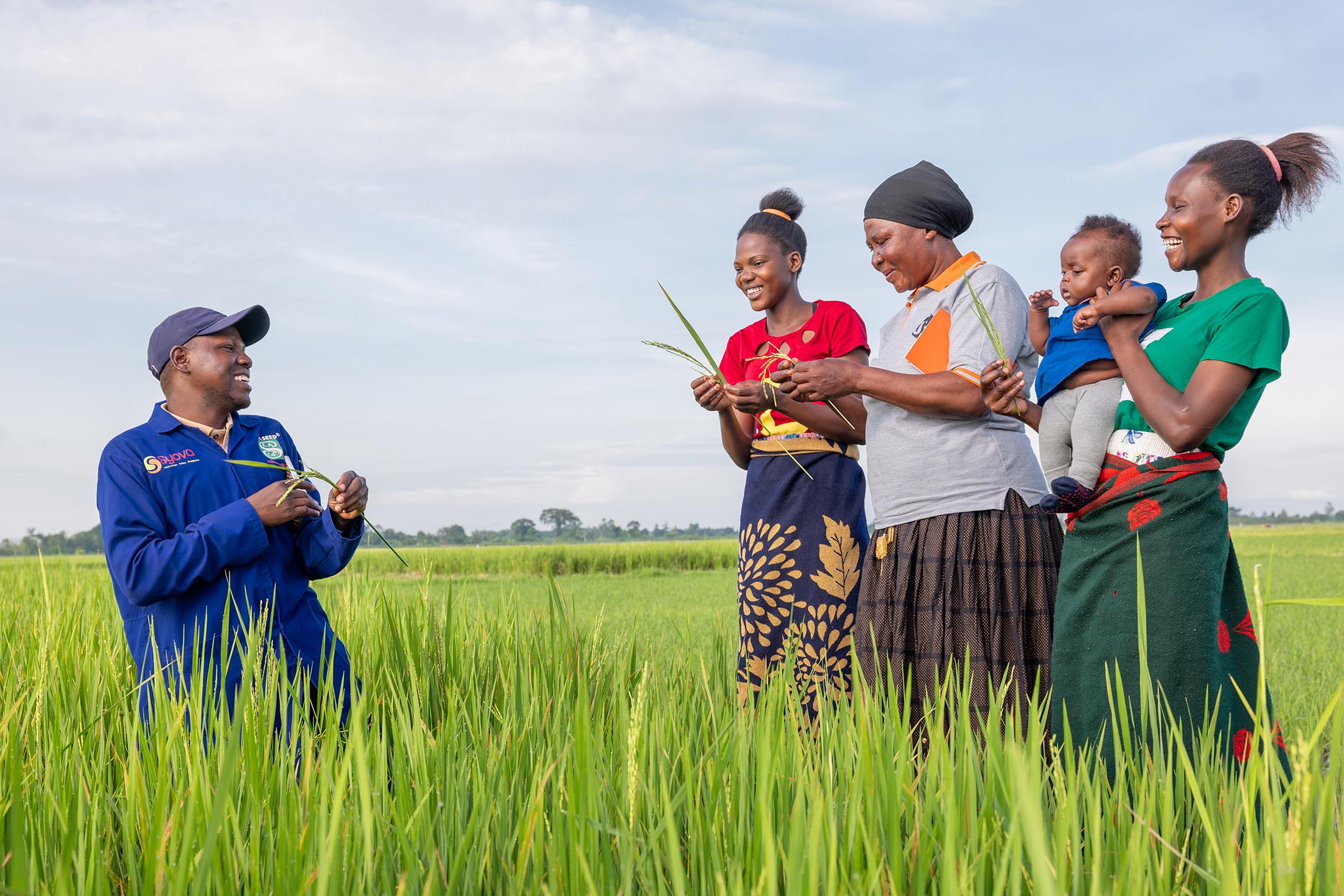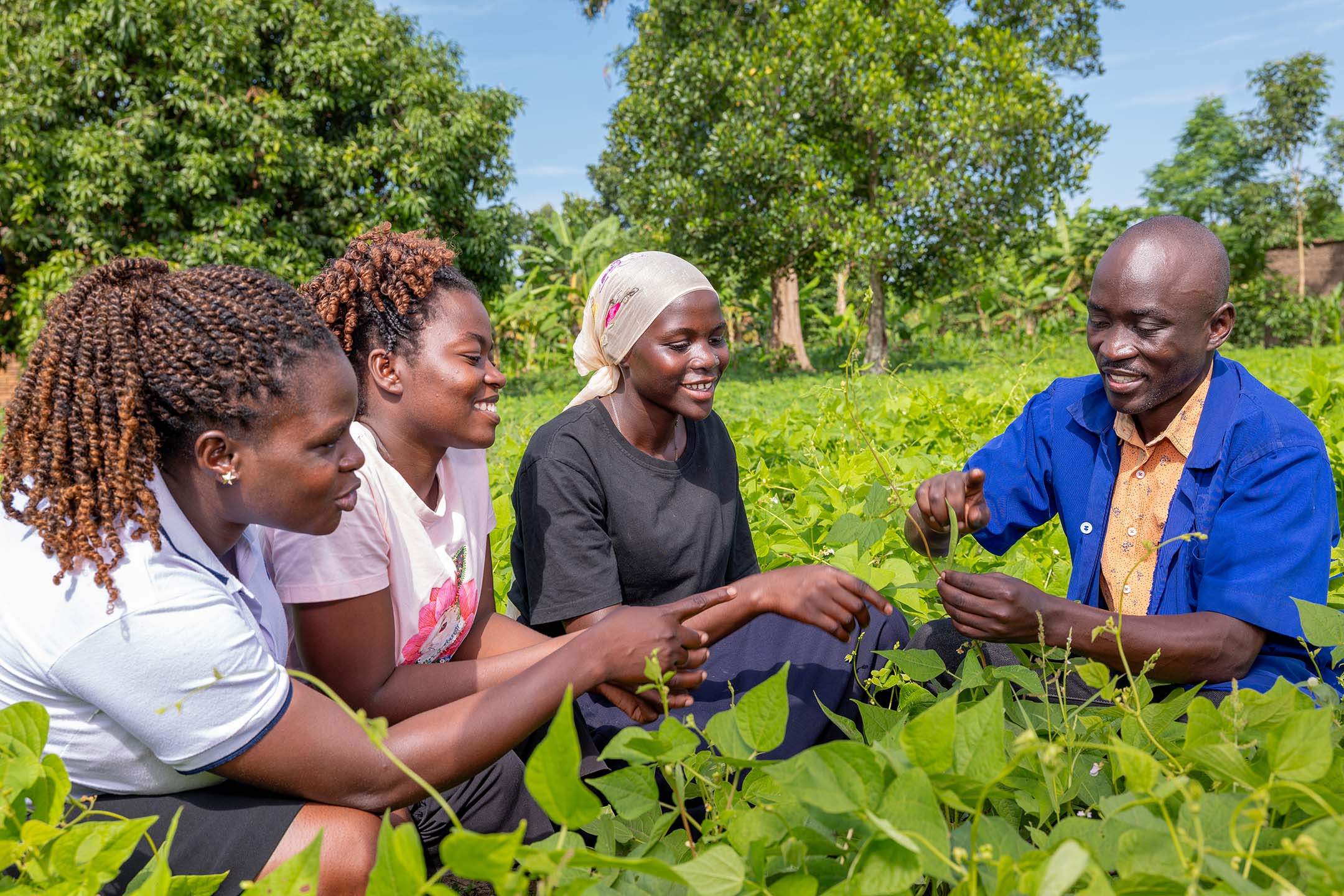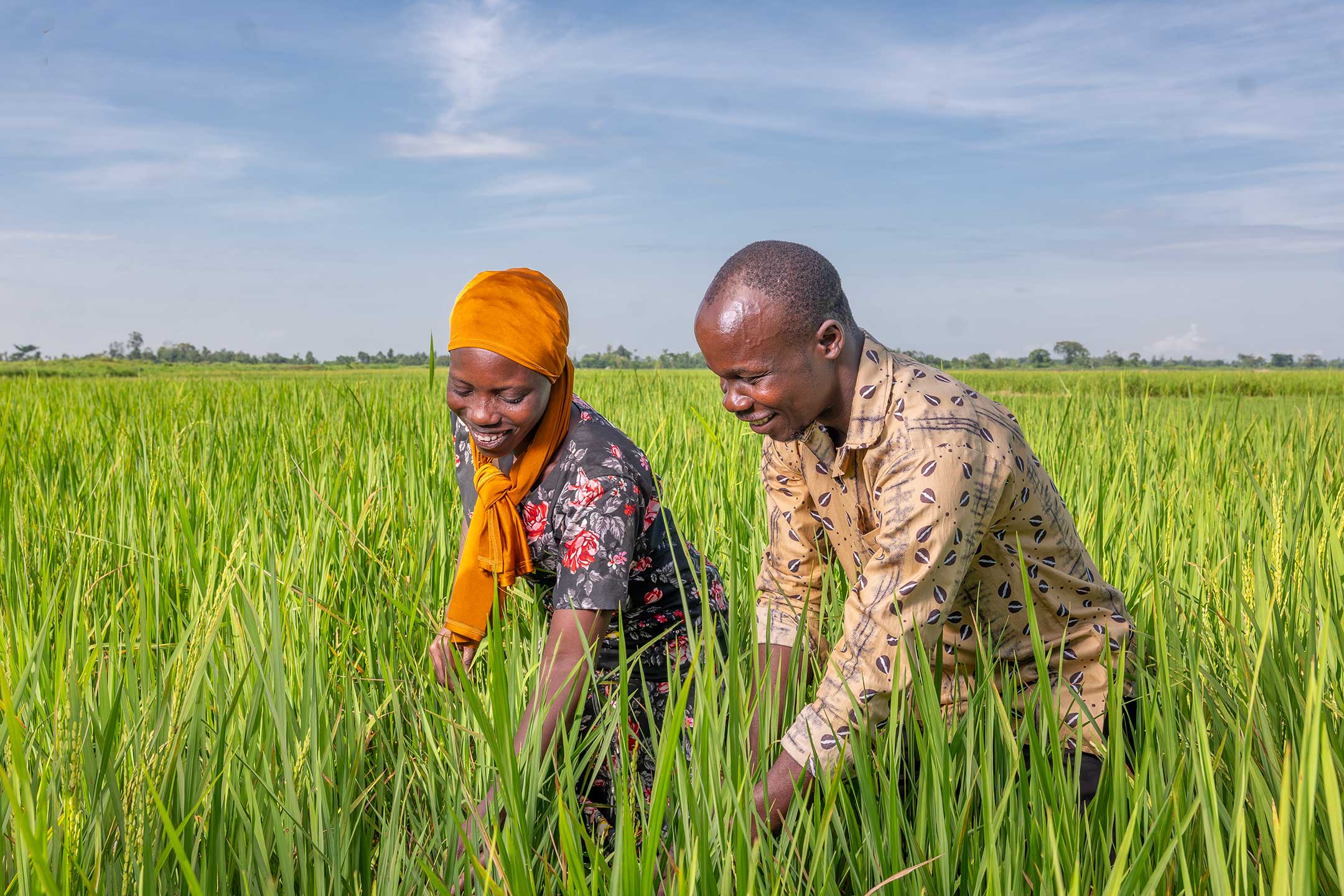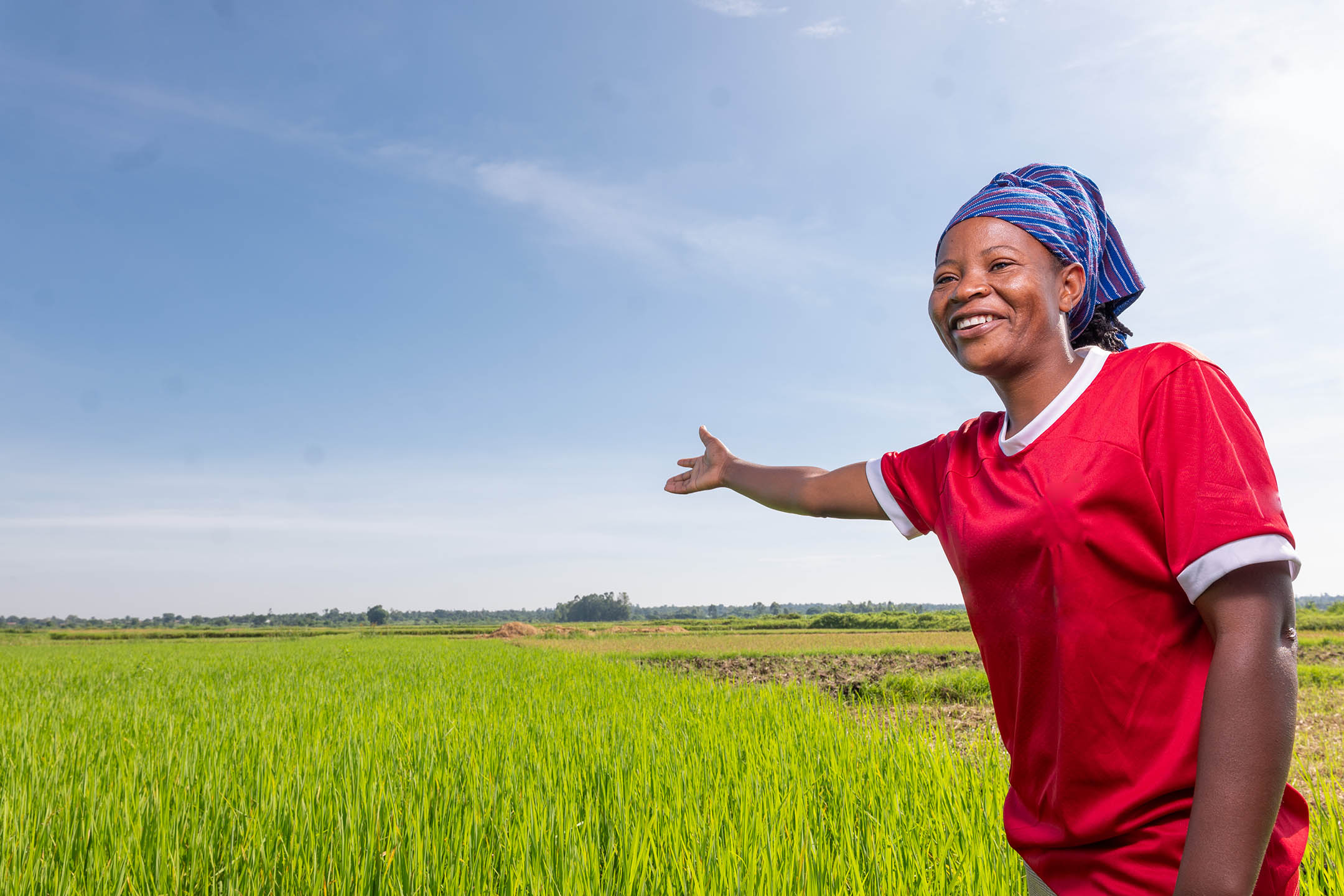Project Details
Subject
Location
Partners
Value Chain
Background
Access to quality seeds of improved bean and rice varieties remains a significant challenge for smallholder farmers in Uganda’s Butaleja District, where these crops are crucial for food security and income. Despite the availability of climate-resilient, high-yielding varieties, adoption is hindered by limited awareness, high input costs, weak market linkages, and deeply rooted gender and social norms. Women and youth are key agricultural actors, they often face additional barriers in accessing seeds, information, and entrepreneurial opportunities. Traditional agricultural programs have inadequately addressed these socio-behavioural constraints. Addressing these gaps through evidence-based Social and Behaviour Change (SBC) strategies is critical for enhancing seed access and agricultural resilience.


Goal
To Implement evidence-based SBC strategies to increase equitable seed access, information, and entrepreneurship among unreached women and youth smallholder farmers in Butaleja District, Eastern Uganda.
Target Audience
Unreached Smallholder Women and Youth Farmers, Consumers, Women and Youth Entrepreneurs.
Implementation
The project began with a formative assessment that identified barriers such as limited seed adoption, high costs, and socio-cultural constraints affecting women and youth. In response, a comprehensive Social and Behaviour Change (SBC) strategy was developed, guided by the socio-ecological model. Key activities included behavior change communication, capacity building for seed producers, and advocacy for supportive policies. The “Eno Sure Seed” campaign, implemented through mass media, posters, and farmer booklets had a reach of over 1.1 million. Four Youth and Women Quality Centres (YWQCs) – Naweyo, Doho, Namunasa and Lubembe were established to disseminate agronomic knowledge. Capacity-building efforts were a core component of the intervention, with 1,784 farmers (1,077 women, 707 men) trained in Good Agricultural Practices (GAP), business skills, and financial literacy. Demonstration plots were set up to facilitate hands-on learning, and 30 youth champions were trained as Trainer-of-Trainers (ToTs) to extend knowledge dissemination. Moreover, 30 seed producers received specialized training in seed multiplication, leading to the production of 2.8 tons of certified bean seeds and 15.4 tons of rice Quality Declared Seed (QDS) per season. Demonstration plots enabled hands-on learning. Strategic partnerships played a crucial role in scaling impact. Collaborations with KOPIA, PRiDe, Kilimo Trust, and seed companies facilitated subsidized seed access, training, and improved market linkages. Policy engagement was also emphasized, working with government stakeholders to advocate for enhanced marketing and distribution of Quality Declared Seeds (QDS) across Uganda. The project ensured continuous engagement through support supervision, WhatsApp groups, in-person feedback, and live radio talk shows to address farmers’ concerns effectively and close feedback loops.


Achievements and Results
An endline study of 853 farmers (436 rice, 417 bean) showed marked improvements in the adoption of improved seed varieties. Among youth farmers, rice adoption increased from 43% to 89%, and beans from 67% to 98%. For women, rice adoption rose from 38% to 91%, and beans from 67% to 83%. These results highlight the success of SBC interventions in boosting seed access and uptake among women and youth, advancing agricultural productivity and food security in Butaleja District. The intervention effectively addressed key barriers, fostering inclusive participation in improved seed systems for long-term livelihood and nutritional benefits.
Conclusion
The project demonstrated that evidence-based SBC strategies can significantly enhance seed adoption among women and youth. By addressing social norms, improving access to information, and building local capacity, the intervention increased the uptake of improved rice and bean varieties. Key lessons include the importance of community-led platforms, tailored communication, and strategic partnerships. Integrating SBC into seed systems fosters inclusive, sustainable agricultural growth and strengthens food security for vulnerable smallholder farmers.
